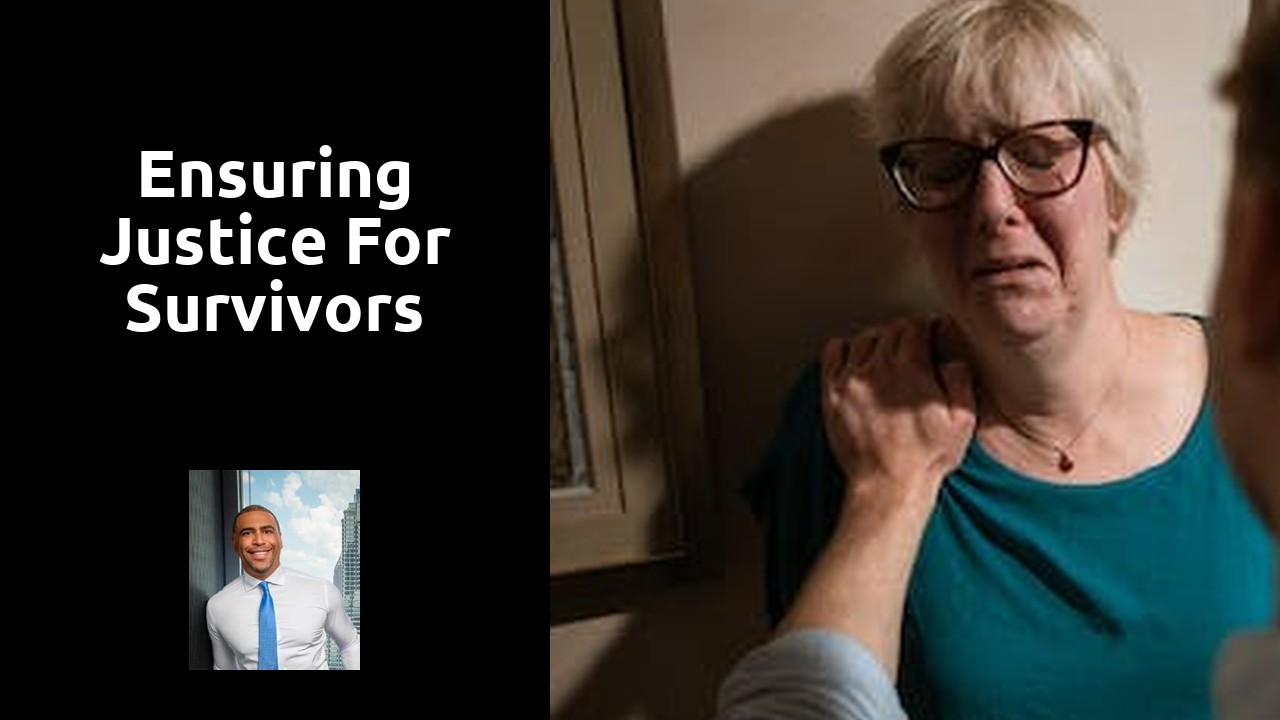Ensuring Justice for Survivors

Table Of Contents
Empowering Survivors
Empowering survivors of injustices is a crucial step towards their healing and recovery. Providing them with the tools, resources, and support they need to reclaim their voice and agency is paramount in ensuring their well-being. By empowering survivors, we enable them to regain control over their lives and move forward with strength and resilience.
Empowerment workshops play a vital role in equipping survivors with skills such as assertiveness, self-care, and emotional regulation. These workshops create a safe space for survivors to share their experiences, connect with others who have gone through similar ordeals, and learn strategies to navigate the challenges they may encounter. Through empowerment workshops, survivors can rebuild their confidence, regain their sense of self-worth, and ultimately thrive despite the hardships they have faced.
Offering Empowerment Workshops
Empowerment workshops play a crucial role in supporting survivors of trauma by providing them with essential tools and resources to rebuild their sense of self-worth and strength. In these workshops, survivors can engage in various activities focused on healing, self-care, and personal growth, fostering a supportive environment where they can feel safe to share their experiences and emotions with others who have gone through similar struggles.
Through interactive exercises, group discussions, and therapeutic techniques, empowerment workshops help survivors gain confidence, develop coping strategies, and find a sense of empowerment in their journey towards healing. By equipping survivors with the necessary skills and support, these workshops empower individuals to reclaim their lives, rebuild their confidence, and move forward with resilience and hope.
Ensuring Fair Trials
Fair trials are a crucial aspect of ensuring justice for survivors of various forms of abuse and violence. They provide an opportunity for survivors to have their voices heard, seek accountability for perpetrators, and ultimately move towards healing and closure. By upholding the principles of due process, fair trials help maintain the integrity of the legal system and promote trust in the judicial process.
Monitoring judicial processes is essential in ensuring that fair trials are conducted effectively and impartially. This oversight helps prevent any instances of bias, corruption, or procedural irregularities that could compromise the rights of survivors. By holding judicial authorities accountable and advocating for transparency in court proceedings, we can strengthen the legal framework to better serve survivors seeking justice.
Monitoring Judicial Processes
An essential aspect of ensuring justice for survivors is the monitoring of judicial processes. By closely observing how cases involving survivors are handled in the legal system, we can identify any shortcomings or biases that may exist and work towards rectifying them. Monitoring judicial processes helps to uphold the principles of fairness, impartiality, and transparency within the legal framework.
Through rigorous monitoring, we can hold accountable those responsible for delivering justice to survivors. By tracking the progress of cases, evaluating the conduct of legal professionals, and scrutinizing the application of laws, we can strive towards a system that is truly just and supportive of survivors seeking recourse. It is crucial to maintain a vigilant stance in monitoring judicial processes to ensure that survivors receive the justice and support they rightfully deserve.
Rehabilitation and Reintegration
Supporting survivors in their journey of rehabilitation and reintegration is a crucial aspect of ensuring justice post-trauma. By providing access to specialized support programs and resources, we can help survivors navigate the challenges they face as they strive to rebuild their lives. These programs aim to offer a safe space for survivors to heal, recover, and ultimately reintegrate into society with confidence and resilience.
Reintegration programs play a significant role in assisting survivors in reclaiming their sense of agency and independence. Through tailored support and guidance, survivors can acquire the necessary skills and tools to lead fulfilling lives beyond their traumatic experiences. Empowering survivors through these programs not only encourages their personal growth but also fosters a sense of community and belonging that is vital for their long-term well-being and successful reintegration.
Supporting Reintegration Programs
Supporting reintegration programs is crucial in facilitating the successful transition of survivors back into society. These programs provide survivors with the necessary support and resources to help them heal, rebuild their lives, and reintegrate into their communities. By offering assistance such as job training, mental health services, and housing support, reintegration programs play a vital role in empowering survivors to reclaim their independence and move forward with their lives.
Moreover, supporting reintegration programs can help reduce the risk of re-victimization by providing survivors with a supportive network and a safe environment to rebuild their sense of security. By fostering a community that values and supports survivors, these programs enable individuals to overcome the challenges they face and thrive in their new lives. Through ongoing support and guidance, reintegration programs empower survivors to break free from the cycle of abuse and injustice, creating a path towards a brighter, more hopeful future.
FAQS
What does empowering survivors entail?
Empowering survivors involves providing them with the necessary tools, resources, and support to regain control over their lives and navigate the justice system effectively.
How do empowerment workshops benefit survivors?
Empowerment workshops offer survivors a safe space to learn about their rights, build self-confidence, and connect with other individuals who have gone through similar experiences.
Why is monitoring judicial processes important in ensuring fair trials for survivors?
Monitoring judicial processes helps to identify and address any biases or shortcomings in the legal system that could impact the outcome of a survivor's case, thus ensuring fair treatment and justice.
What role do rehabilitation and reintegration play in the justice process for survivors?
Rehabilitation and reintegration programs are essential in helping survivors heal from trauma, rebuild their lives, and reintegrate back into society after experiencing injustice.
How can supporting reintegration programs benefit survivors in the long term?
Supporting reintegration programs can provide survivors with ongoing support, skills training, and opportunities for sustainable reintegration, ultimately empowering them to lead fulfilling lives beyond their past experiences."""
Related Links
Macon, GA sexual abuse lawyer representing survivorsProviding Support and Guidance
Expertise in Sexual Abuse Cases